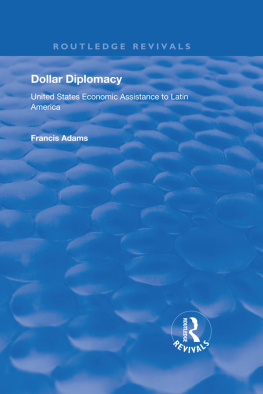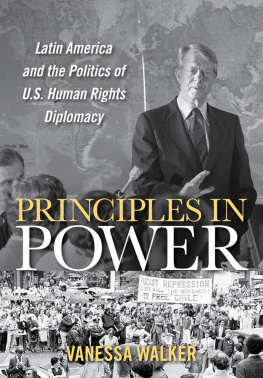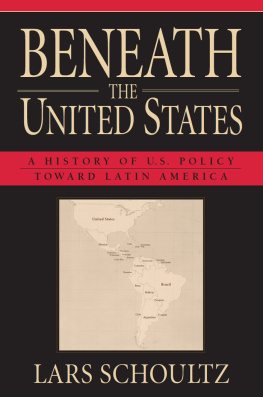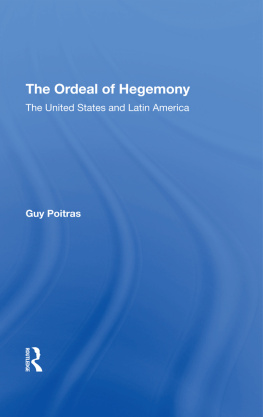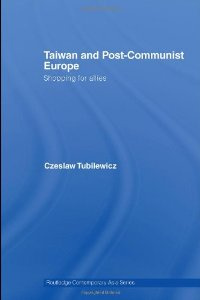Francis Adams - Dollar Diplomacy: United States Economic Assistance to Latin America
Here you can read online Francis Adams - Dollar Diplomacy: United States Economic Assistance to Latin America full text of the book (entire story) in english for free. Download pdf and epub, get meaning, cover and reviews about this ebook. year: 2000, publisher: Routledge, genre: Politics. Description of the work, (preface) as well as reviews are available. Best literature library LitArk.com created for fans of good reading and offers a wide selection of genres:
Romance novel
Science fiction
Adventure
Detective
Science
History
Home and family
Prose
Art
Politics
Computer
Non-fiction
Religion
Business
Children
Humor
Choose a favorite category and find really read worthwhile books. Enjoy immersion in the world of imagination, feel the emotions of the characters or learn something new for yourself, make an fascinating discovery.
- Book:Dollar Diplomacy: United States Economic Assistance to Latin America
- Author:
- Publisher:Routledge
- Genre:
- Year:2000
- Rating:3 / 5
- Favourites:Add to favourites
- Your mark:
- 60
- 1
- 2
- 3
- 4
- 5
Dollar Diplomacy: United States Economic Assistance to Latin America: summary, description and annotation
We offer to read an annotation, description, summary or preface (depends on what the author of the book "Dollar Diplomacy: United States Economic Assistance to Latin America" wrote himself). If you haven't found the necessary information about the book — write in the comments, we will try to find it.
Francis Adams: author's other books
Who wrote Dollar Diplomacy: United States Economic Assistance to Latin America? Find out the surname, the name of the author of the book and a list of all author's works by series.
Dollar Diplomacy: United States Economic Assistance to Latin America — read online for free the complete book (whole text) full work
Below is the text of the book, divided by pages. System saving the place of the last page read, allows you to conveniently read the book "Dollar Diplomacy: United States Economic Assistance to Latin America" online for free, without having to search again every time where you left off. Put a bookmark, and you can go to the page where you finished reading at any time.
Font size:
Interval:
Bookmark:
Norfolk, Virginia
January 2000
| AACCLA | American Association of Chambers of Commerce of Latin America |
| ACILS | American Center for International Labor Solidarity |
| ACVA | American Council of Voluntary Agencies |
| AD | Democratic Action Party |
| AFP | Alliance for Progress |
| AID | Agency for International Development |
| AIFLD | American Institute for Free Labor Development |
| APRA | Popular Action Party |
| BFW | Bread for the World |
| BHN | Basic Human Needs |
| CACM | Central American Common Market |
| CADO | Central American Development Organization |
| CBERA | Caribbean Basin Economic Recovery Act |
| CBI | Caribbean Basin Initiative |
| C/CAA | Caribbean/Central American Action |
| CDB |
Font size:
Interval:
Bookmark:
Similar books «Dollar Diplomacy: United States Economic Assistance to Latin America»
Look at similar books to Dollar Diplomacy: United States Economic Assistance to Latin America. We have selected literature similar in name and meaning in the hope of providing readers with more options to find new, interesting, not yet read works.
Discussion, reviews of the book Dollar Diplomacy: United States Economic Assistance to Latin America and just readers' own opinions. Leave your comments, write what you think about the work, its meaning or the main characters. Specify what exactly you liked and what you didn't like, and why you think so.

